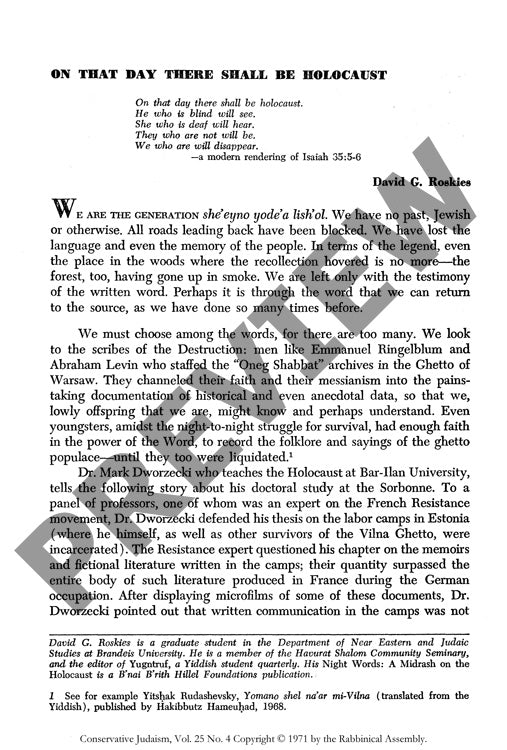On That Day There Shall Be Holocaust
Couldn't load pickup availability
Holocaust literature defies simple categorization into moral lessons or clear narratives of good versus evil, demanding instead a confrontation with the irresolvable paradoxes embedded in survivor testimonies. Through literary analysis and critical review, this research evaluates diverse approaches to Holocaust documentation and interpretation, distinguishing between memoir literature and fiction in works by Emmanuel Ringelblum, Abraham Levin, and Abraham Sutzkever who chronicled ghetto experiences. Reductive frameworks like Irving Halperin's "Messengers From the Dead" fail to capture the profound complexity of Holocaust literary works by attempting to distill them into straightforward moral formulations. While historians have shown remarkable intellectual courage in confronting Holocaust realities - often surpassing novelists in this regard - even rigorous historical analysis cannot fully explicate the unprecedented nature of systematic Jewish destruction. The preservation of nuanced testimonial literature proves essential to preventing collective amnesia, while post-Holocaust Jewish identity requires radical reinterpretation of traditional texts and myths. New midrashic approaches may offer pathways to understanding that avoid both despair and oversimplification while maintaining fidelity to the complexities of survivor experiences.

More Information
-
Physical Description
-
Publication Information
Published 1971
ISBN
-
Publication Credits

